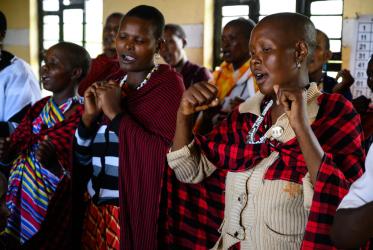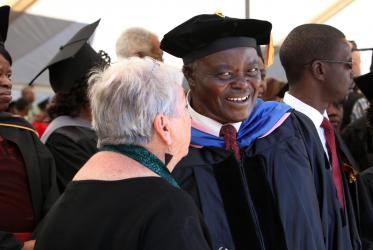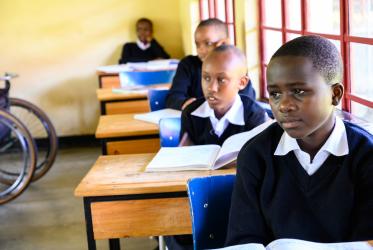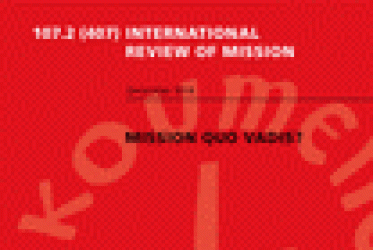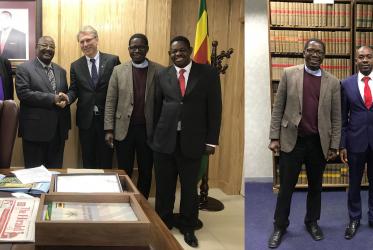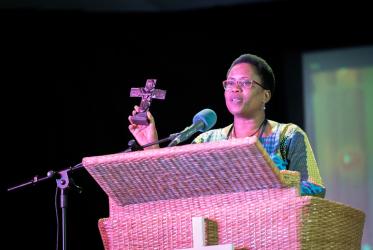Displaying 1 - 20 of 45
WCC remembers life of Patrick Matsikenyiri, a joyful song leader
15 February 2021
Young Africans are eager to grapple with challenges
09 January 2020
Moravian Church in Tanzania launches Thursdays in Black
10 September 2019
Mission and people with disabilities
26 June 2019
New issue: International Review of Mission
14 December 2018
Rev. Kenneth Mtata reflects on journey of transition in Zimbabwe
20 September 2018
#WCC70: Fellowship of women and men – with ups and downs
17 August 2018
“Sending service” closes Arusha conference
13 March 2018
‘Sokoni’ transforms marketplace into mission
13 March 2018
